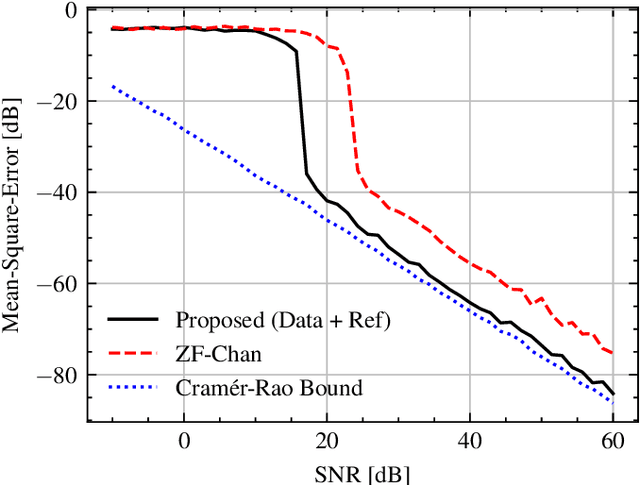Joint Delay-Doppler Estimation using OFDMA Payloads for Integrated Sensing and Communications
Paper and Code
Mar 06, 2025



The use of future communication systems for sensing offers the potential for a number of new applications. In this paper, we show that leveraging user data payloads in multi-node Orthogonal Frequency Division Multiple Access (OFDMA) networks for estimating target delay and Doppler-shift parameters can yield a significant advantage in SNR and addressable bandwidth. However, gaps in the frequency-time resources, reference signal boosting and amplitude modulation schemes introduce challenges for estimation at the sensing receiver. In this work, we propose a joint delay and Doppler-shift model-based estimator designed to address these challenges. Furthermore, we demonstrate that incorporating knowledge of the device model into the estimation procedure helps mitigate the effects of the non-ideal radar ambiguity function caused by amplitude-modulated user payloads and sparse reference signals. Simulation results demonstrate that the estimator achieves the theoretical lower bound on estimation variance.
 Add to Chrome
Add to Chrome Add to Firefox
Add to Firefox Add to Edge
Add to Edge